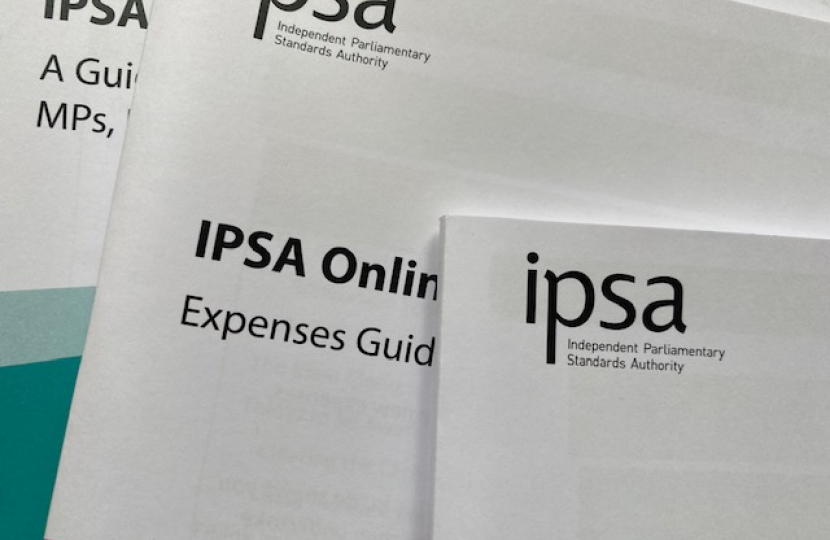
Yesterday the Independent Parliamentary Standards Authority announced their decision to increase MPs salaries in line with the average increase in pay for public sector employees last year, an increase of 2.7 per cent. This is not a decision that MPs make and not something that MPs can vote on to accept or reject.
The Independent Parliamentary Standards Authority is an independent body that regulates and administers the business costs and decides the pay and pensions MPs. IPSA was set up under the Parliamentary Standards Act 2009, largely as a response to the parliamentary expenses scandal of 2009. In 2015 IPSA decided on that MPs pay would be adjusted at the same rate as changes in public sector earnings published by the Office for National Statistics. IPSA have published details on the decisions that they have made on MPs pay on their website.
On 1st March all MPs received a letter from IPSA advising of their decision which I set out below.
Dear Mr Howell,
MPs’ Pay for 2022-23
I write to let you know that today IPSA is announcing details of MPs’ pay for the coming year.
As you will know, IPSA has a legal duty to set MPs’ pay, independently of Parliament and government. Our role is to ensure that MPs are properly remunerated for the important role they undertake in our democracy, whilst also being fair to taxpayers.
IPSA’s Board has decided that the annual adjustment to MPs’ basic pay for 2022-23 will be the same as the average increase in pay for public sector employees last year. This will result in an increase of 2.7 per cent, bringing the overall salary from £81,932 to £84,144 from 1 April 2022. It is the first increase for two years, as pay remained unchanged in 2021 due to the coronavirus pandemic.
This is in line with the decision by IPSA in 2015 to adjust MPs’ pay at the same rate as changes in public sector earnings published by the Office of National Statistics.
Tracking public sector pay in this way is used elsewhere. For example, the Scottish equivalent of this measure was used by Holyrood to increase MSP salaries by 3.4 per cent this year. We have also compared pay in Westminster with that for MPs in other G7 economies.
Providing MPs with an increase this year, reflecting the approach across the public sector, means that we avoid the situation where MP pay falls behind and requires a more significant adjustment in the future to catch up, as happened in 2015.
We do not believe that serving as an MP should be the preserve of those wealthy enough to fund it themselves. It is important for our democracy that committed and able individuals from any background should see representing their communities in Parliament as a realistic option.
Your sincerely
Richard Lloyd
IPSA Chair
Further details about the work of IPSA including their decisions and publications can be found on their website

